until 6 April 2025
With a large-scale exhibition spanning several epochs, the Hamburger Kunsthalle looks at the diverse facets of the theme of illusion in art from the Old Masters to the present day. Trompe-l’œil has been widely used in art since antiquity, flourishing in particular in the Renaissance and Baroque periods. And this technique continues to fascinate artists today, when the spread of fake news is almost normal, when people are confronted daily with manipulated images on the internet and virtual reality seems to be expanding our cosmos into infinity. We now live in the certainty that we can no longer trust our eyes, that images are deceptive and are used to depict what is desired rather than what is. But the exhibition shows how illusion means far more than merely deceiving the eye. It is manifested in the (illusionistic) self-love of Narcissus as well as in spatial illusions in architecture, in the play of concealing and revealing via the pictorial motifs of the curtain and the mask, in the meaning of the open or closed window onto the world, and in images of visions and dreams. Based on some 150 paintings, drawings, prints, photographs, sculptures, installations and video works, the show traces the many different forms taken by hyperrealism, reality, fiction, dream, transformation and deception. Among the exhibits are major works from the Hamburger Kunsthalle as well as loans from national and international collections.
The Hamburger Kunsthalle app offers audio tours of the exhibition for adults (in German and English) and for children and young people aged 8 and over (in German). In addition, visitors can explore four of the exhibited artworks interactively at a Virtual Reality Station integrated into the galleries.
An exhibition catalogue (Hatje Cantz Verlag, 320 pages) is available for 35 euros in the museum shop or via www.freunde-der-kunsthalle.de at a bookstore price of 54 euros. Introductory essays as well as detailed commentaries on the exhibits examine in depth the varied facets of the concept of illusion. In addition, literary excerpts, poems and philosophical discussions by Jean Baudrillard, Bertolt Brecht, André Breton, Ovid and William Shakespeare underline the timelessness of the topic and its interdisciplinary nature. The publication has been funded by the two foundations Ernst von Siemens Kunststiftung and Martha Pulvermacher Stiftung.
Featured artists: Helene Appel, Hans Arp, Thomas Baldischwyler, Max Beckmann, Paris Bordone, Carl Gustav Carus, Marc Chagall, Jean-Baptiste Siméon Chardin, Adriaen Coorte, Lovis Corinth, Edgar Degas, Robert Delaunay, Johann Friedrich Dieterich, Gerrit Dou, Wilhelm Schubert von Ehrenberg, Lars Eidinger, Elmgreen & Dragset, James Ensor, Max Ernst, M. C. Escher, Juan Fernández, Charles de la Fosse, Caspar David Friedrich, Johann Heinrich Füssli, Xaver Fuhr, Jean-Léon Gérôme, Cornelis Gijsbrechts, Nan Goldin, Francisco de Goya, Andreas Greiner, Joachim Grommek, Duane Hanson, Vilhelm Hammershøi, Johann Georg Hinz, David Hockney, Samuel van Hoogstraten, Roni Horn, Gerard Houckgeest, Horst Janssen, Alexander Kanoldt, Howard Kanovitz, Anish Kapoor, Oskar Kokoschka, Jens Lausen, François Lemoyne, Lorenzo Lippi, Simon Luttichuys, Alfred Madsen, René Magritte, Tony Matelli, Stefan Marx, Adolph Menzel, Frans van Mieris d. Ä., Piet Mondrian, Ron Mueck, NEAL, Giovanni Battista Piranesi, Sigmar Polke, Gerhard Richter, Joachim Ringelnatz, Jan van Rossum, Pieter Jansz. Saenredam, Godfried Schalcken, Markus Schinwald, Oskar Schlemmer, Georg Schrimpf, Cindy Sherman, Kiki Smith, Antonie van Steenwinckel, Theodoor van Thulden, Nikos Valsamakis, Victor Vasarely, Wolf Vostell, Friedrich Wasmann, John William Waterhouse, Jacob de Wit and Francisco de Zurbarán.
Curator: Dr. Sandra Pisot
Assistant Curator: Dr. Johanna Hornauer
Jana Schiedek, Hamburg State Councillor for Culture and Media: »The theme of ILLUSION in art goes far beyond optical tricks and touches on fundamental questions of how we see reality. In the ILLU- SION exhibition, cleverly selected exhibits from several centuries and periods illustrate the many different responses artists have given to the question of whether the opposite of truth must always be a lie. On display are works from the Kunsthalle’s own collection as well as high-calibre loans from Germany and abroad. Based on these artworks, the Kunsthalle spans an arc to the present day, raising questions about authenticity and the (im)possibility of alternative truths that go far beyond art to affect politics and our everyday media consumption. An exciting exhibition that sharpens our view of the world.«
Dr. Martin Hoernes, Secretary General of the Ernst von Siemens Kunststiftung: »The exhibition ILLUSION. Dream – Identity – Reality at the Hamburger Kunsthalle is dedicated to a theme of timeless and universal relevance: the question of reality versus fiction. It delves into the power wielded by illusion- ist images and explores how art can shape and challenge our understanding of reality across disciplines and epochs. At a time when fake news and artificial intelligence are increasingly blurring the boundaries between reality and fiction, the show also highlights key societal debates in the twenty-first century.«
IMAGES
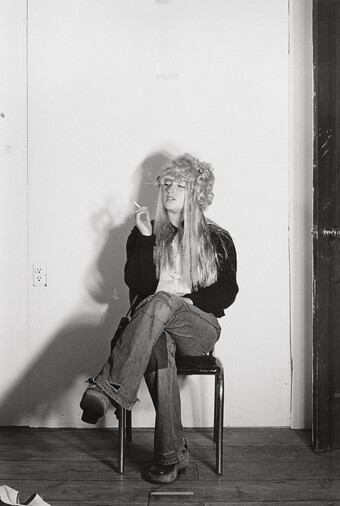
Cindy Sherman Bus Rides , 1976/2000
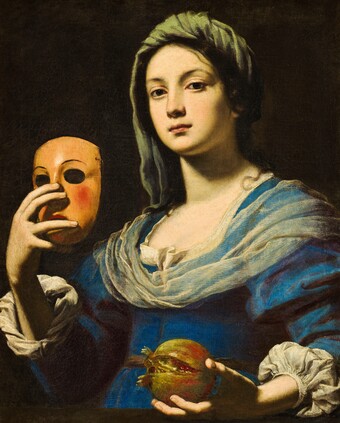
Lorenzo Lippi Die Allegorie der Täuschung (Allégorie de la Simulation) , um 1640
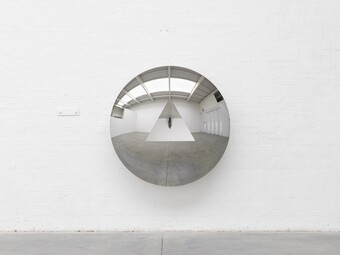
Anish Kapoor (*1954) Concave Convex Mirror (Triangle) , 2019
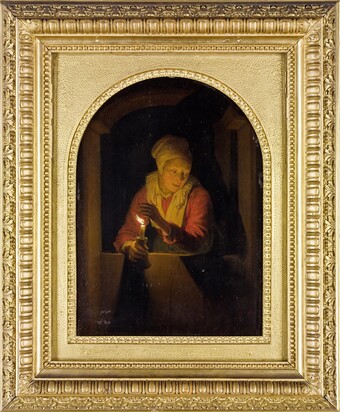
Gerrit Dou Alte Frau mit Kerze , 1661
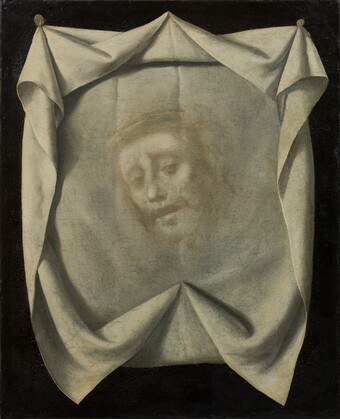
Francisco de Zurbarán Schweißtuch der hl. Veronika , um 1635–40
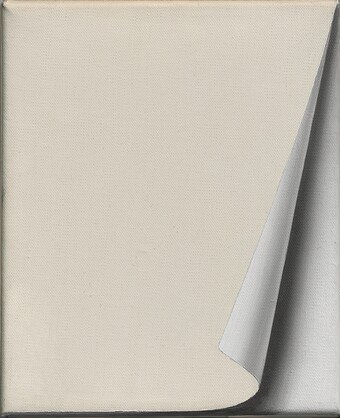
Gerhard Richter Umgeschlagenes Blatt , 1965
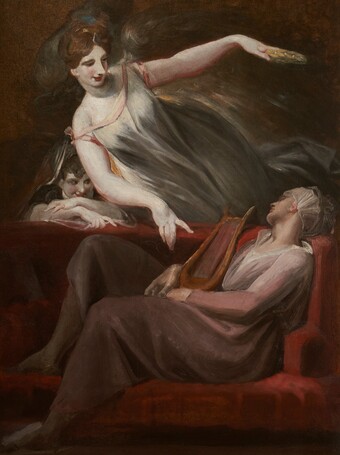
Johann Heinrich Füssli Die Vision des Dichters (Shakespeare) , 1806–07
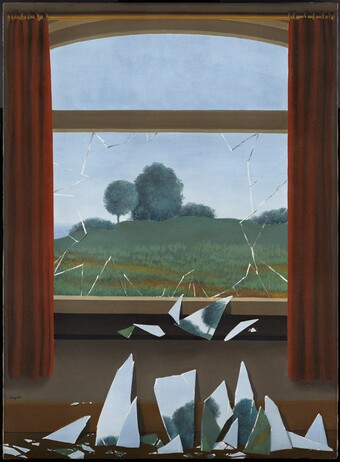
René Magritte The Key of the Field (La Clef des champs) , 1936
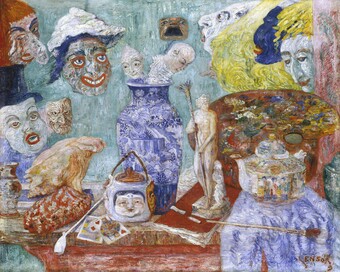
James Ensor Stillleben mit Masken , 1896
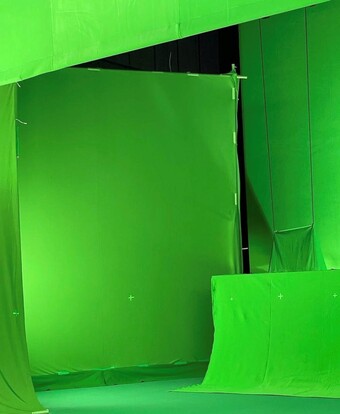
Lars Eidinger Berlin , 2022
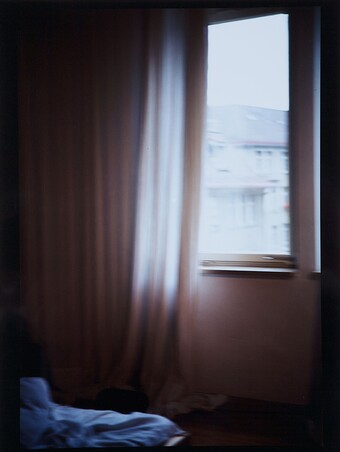
Nan Goldin Hotel Room Zurich , 1988
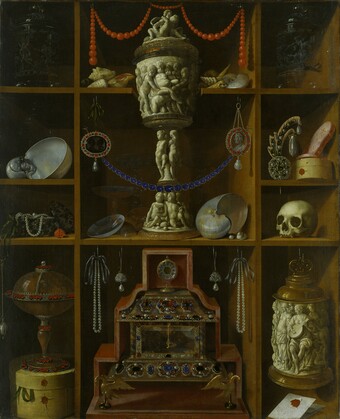
Johann Georg Hinz Kunstkammerregal , 1666
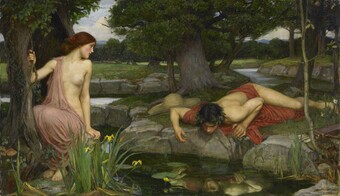
John William Waterhouse Echo und Narziss , 1903
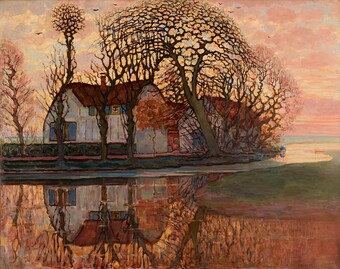
Piet Mondrian Bauerngehöft in der Nähe von Duivendrecht , 1916